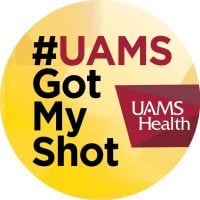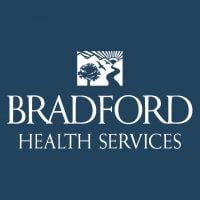Gyst House
Drug Rehab Center in Little Rock, Arkansas
Gyst House in Little Rock, Arkansas is a comprehensive addiction treatment facility offering various levels of care and personalized treatment options for individuals struggling with alcoholism, drug addiction, and substance abuse, including evidence-based therapy, medication-assisted treatment (MAT), and holistic services such as yoga and meditation.
About Gyst House in Arkansas
Gyst House in Little Rock, AR, stands out as a nonprofit organization intensely focused on battling drug and alcohol addiction among women and men. This standout facility paves the way to sobriety through high-quality care, an experienced team, and comprehensive addiction treatment services. They distinguish themselves with a client-driven approach emphasizing compassion, creativity, and ethical conduct.
- Client-Driven Approach: At Gyst House, every individual is treated as a family member, receiving personalized care tailored to their specific needs.
- Wide Range of Services: Offering outpatient programs that include 12-step groups, counseling, anger management, and more, the center ensures a holistic recovery journey.
- Support Beyond Treatment: Participants benefit from job training, educational referrals, and permanent housing assistance, highlighting Gyst House's commitment to sustained recovery.
Gyst House is accredited by the Substance Abuse and Mental Health Services Administration (SAMHSA) and holds a valid state license, reflecting their standard of excellence. The recovery center's commitment to top-notch services is evidenced by their wide array of programs and services tailored to help individuals achieve and maintain sobriety.
Specializing in treating drug and alcohol addiction, Gyst House offers a multifaceted treatment method including outpatient services, 12-step participation, and various counseling options. By focusing on individual and group therapy, along with anger management and social skills classes, they furnish a comprehensive approach to recovery.
Genders
Ages
Modality
Additional
Accreditations
State License
SAMHSA
Conditions and Issues Treated
Levels of Care Offered
This center offers a variety of custom treatment tailored to individual recovery. Currently available are Aftercare Support, Drug Rehab, Inpatient, Intensive Outpatient, Outpatient, Residential, Sober-Living / Half-Way, with additional therapies available as listed below.
Inpatient recovery offers individual therapy, groups, and family therapy. The length of inpatient addiction treatment depends on the addict and their addiction. Inpatient rehab is a costly drug treatment, costing anywhere from $30k- to $60k. However, insurance often offers help in covering these costs.
An intensive outpatient treatment program, or IOP, is set up for those struggling with an addiction to begin the recovery process. However, the patient will not live at the facility during treatment.
IOP involves patients coming in and out of a medical office building regularly to receive therapy and other services while continuing their life outside of these visits.
IOP is a step up from drug detoxification or alcohol detox. However, it’s still considered a phase of recovery rather than the ultimate goal. There are many rehabs and treatment facilities available to patients in need of IOP.
Outpatient treatment can be considered the lowest intensity level of addiction treatment in Little Rock, AR. It is ideal for early phase addiction or lower intensity addictions. Gyst House peer group support, 12-step programs, and individual counseling are likely to be involved.
Sober living homes are transitional houses for recovering addicts who need more structure than they would receive in an aftercare program. Specific rules and regulations are enforced in these homes, which are beneficial for people who need a greater degree of structure than other types of treatment.
Sober living home options include:
- Live-in managers – might be beneficial to people who do not have a support system in place at home, or who experience high levels of stress between work and home life.
- House managers – House managers are beneficial for people who do not have a strong social network to rely on, or who are concerned about relapse in their daily lives.
- House parents – House parents are beneficial to people who reside in areas without a strong aftercare program for support.
Residential treatment programs are those that offer housing and meals in addition to substance abuse treatment. Rehab facilities that offer residential treatment allow patients to focus solely on recovery, in an environment totally separate from their lives. Some rehab centers specialize in short-term residential treatment (a few days to a week or two), while others solely provide treatment on a long-term basis (several weeks to months). Some offer both, and tailor treatment to the patient’s individual requirements.
Aftercare support is vital to those who have completed a drug or alcohol treatment program. This support comes in individual and family counseling, treatment of psychiatric and other medical conditions, and medications to reduce cravings. It helps recovering addicts adjust to normal day-to-day activities and can last for a year or longer.
The majority of drug and alcohol addicts who receive aftercare treatment do not relapse. It is estimated that without aftercare, the relapse rate will be between 70 to 90 percent for most people. Aftercare is the final stage in addiction recovery, but it will also help maintain sobriety if relapse does occur.
Therapies & Programs
Individual therapy is ideal for addicts who want to focus on themselves. It can also be helpful for those whose withdrawal symptoms are exacerbated by the presence of other people.
Benefits of individual therapy are:
- Access to a personalized treatment plan that focuses on the individual needs of the addict
- More privacy during treatment sessions
- Better personal development through introspection
- Increased self-awareness regarding addictive tendencies in order to avoid relapse
- Greater potential for a long-term recovery plan
- Receiving professional advice and detox assistance from medical staff
Family therapy can help you and your family deal with old issues that may trigger substance abuse. The idea behind family therapy for drug addiction is that you are never fully healed from substance abuse until you’ve healed your relationship with your family, too. To get sober, you need to find a different way to cope with the pain in your life.
This is when a group of people in various stages of recovery meet up and discuss their experiences, triggers, successes, failures, and even alternative therapies! Unlike support groups where everyone already knows each other, group therapy is conducted along side outpatient or inpatient treatment at Gyst House.
Dialectical Behavior Therapy (DBT) is used by drug treatment centers across the United States to help drug addicts become sober. DBT is a type of Cognitive Behavioral Therapy (CBT) that combines traditional behavioral treatments with elements from DBT, including dialectics, distress tolerance, and interlocking issues. Some of the negative behaviors associated with addiction, such as impulsivity and mood swings, are addressed in DBT, while others like craving and isolation are not. It is commonly used to treat Borderline Personality Disorder (BPD) along with substance abuse disorders.
The four DBT modules are mindfulness, interpersonal effectiveness, emotion regulation, and distress tolerance:
- Mindfulness helps recovering addicts learn to identify and experience their emotions while realizing that they are not permanent.
- Interpersonal Effectiveness includes assertiveness, asking for what you need, and saying no while improving communication skills.
- Distress Tolerance has recovering addicts learn how to tolerate distress at the moment and avoid resorting to substance abuse.
- Emotion Regulation is used to identify, express and change emotions.
CBT is a psychotherapy approach and method. [ws-nap-name] people to examine how their thoughts, including habitual harmful and inaccurate thinking, affect their actions. CBT is based on the idea that rigid, inflexible thinking leads to poor stress management, which leads to emotional distress.
Similarly, CBT helps people identify and change negative behaviors. It makes you question your perceptions and ask if they are realistic. CBT asks people to examine their behaviors and emotional responses and how they affect their lives. CBT aims to change people’s thinking and behavior to lead a more balanced and healthy life.
Moreover, CBT has been shown to reduce anxiety disorders, depression, and symptoms associated with harmful thoughts or actions.
The results of Rational Emotional Behavior Therapy treatment are clear. It seeks to help you in the short term rather than being lifelong treatment. Rational Emotional Behavior Therapy addresses the root issue of an individual’s emotional distress. It is proven effective with substance use disorders, which can help break a spiral of negative thinking. A drug rehab center that uses REBT is more likely to be successful. It creates lasting changes in a patient’s behavior, and this can improve your quality of life.
Those struggling with addiction can benefit from learning certain life skills. It is not as simple as quitting drinking or taking drugs and thinking that the hard part is over. Being sober means living a whole new way of life. Many recovering addicts have found that they need to develop talents like time management, organization, communication skills, socialization skills, and self-esteem to make their life in sobriety work, Gyst House is here to help with that.
Payment Options Accepted
For specific insurance or payment methods please contact us.
Gyst House Associated Centers
Discover treatment facilities under the same provider.
Learn More About Gyst House Centers
Additional Details
Specifics, location, and helpful extra information.
Little Rock, Arkansas 72209 Phone Number(501) 568-1682 Meta DetailsUpdated April 15, 2024
Staff Verified
Gyst House Patient Reviews
There are no reviews yet. Be the first one to write one.
Little Rock, Arkansas Addiction Information
Arkansas has one of the highest rates of substance abuse and addiction in the nation for drug overdoses. Methamphetamines and prescription opioids are by far the most widely abused drugs in the state. Despite the high rates, Arkansas ranked only 25th in the for drug overdose deaths in 2013.
In Little Rock, Arkansas, there are approximately 1,000 people who are admitted to treatment centers for addiction to drugs or alcohol every year. There were 2,721 admissions to publicly funded alcohol and drug treatment programs in Little Rock in 2016. The most commonly reported drugs of abuse were methamphetamine (42%), heroin (26%), and alcohol (22%). Some popular treatment options include inpatient rehab, outpatient rehab, and detox centers.
Treatment in Nearby Cities
- Danville, AR (64.9 mi.)
- Augusta, AR (69.6 mi.)
- Pine Bluff, AR (36.7 mi.)
- Magnolia, AR (110.2 mi.)
- Hardy, AR (123.3 mi.)
Centers near Gyst House
The facility name, logo and brand are the property and registered trademarks of Gyst House, and are being used for identification and informational purposes only. Use of these names, logos and brands shall not imply endorsement. RehabNow.org is not affiliated with or sponsored by Gyst House.











